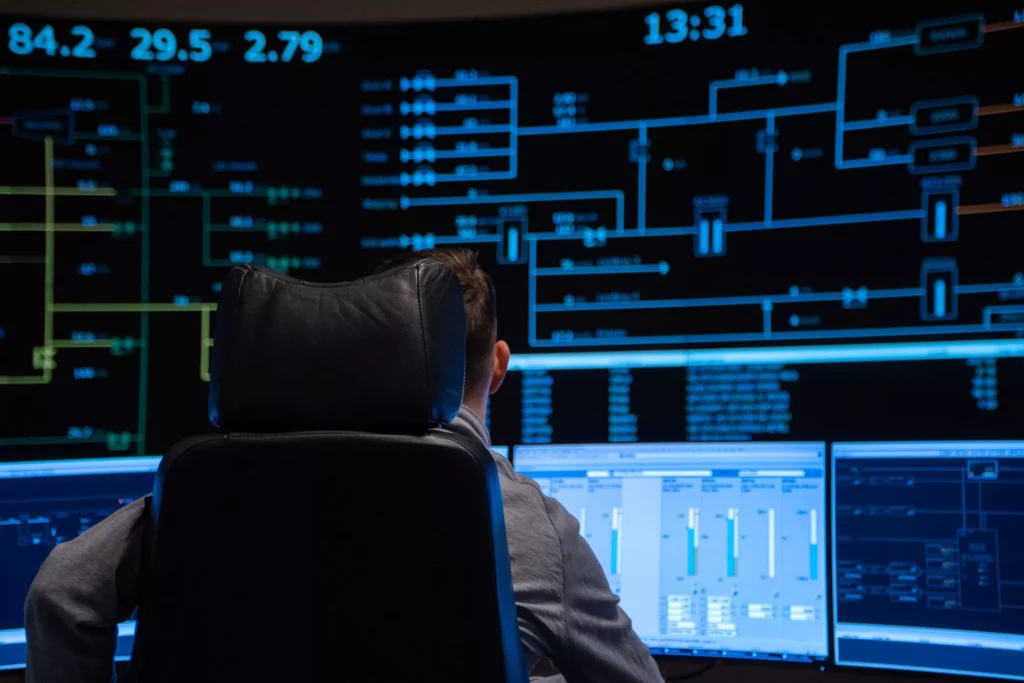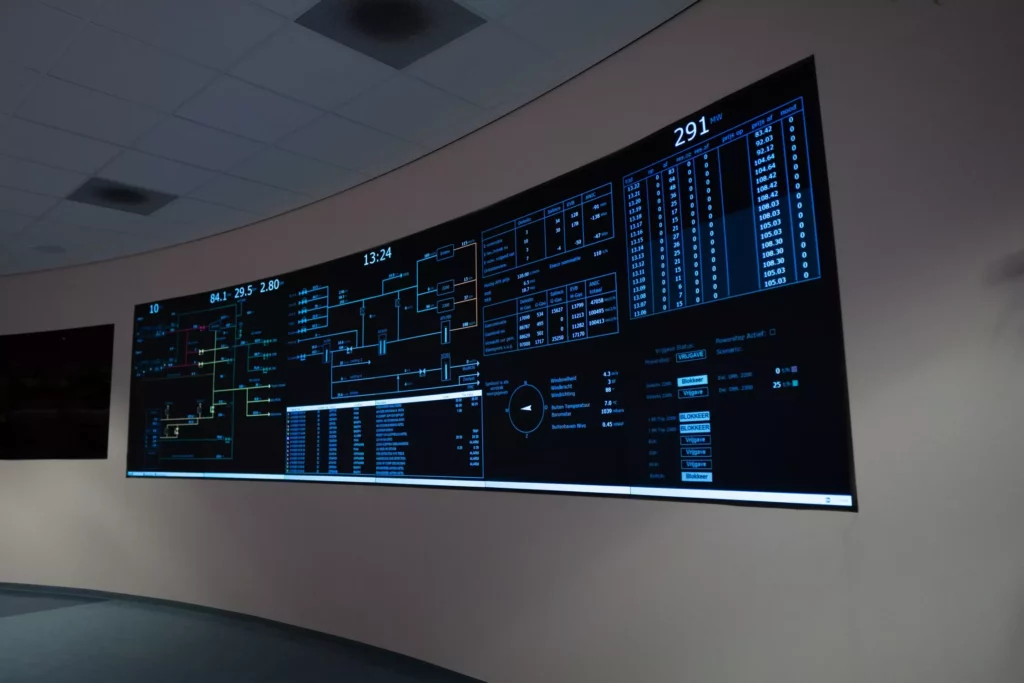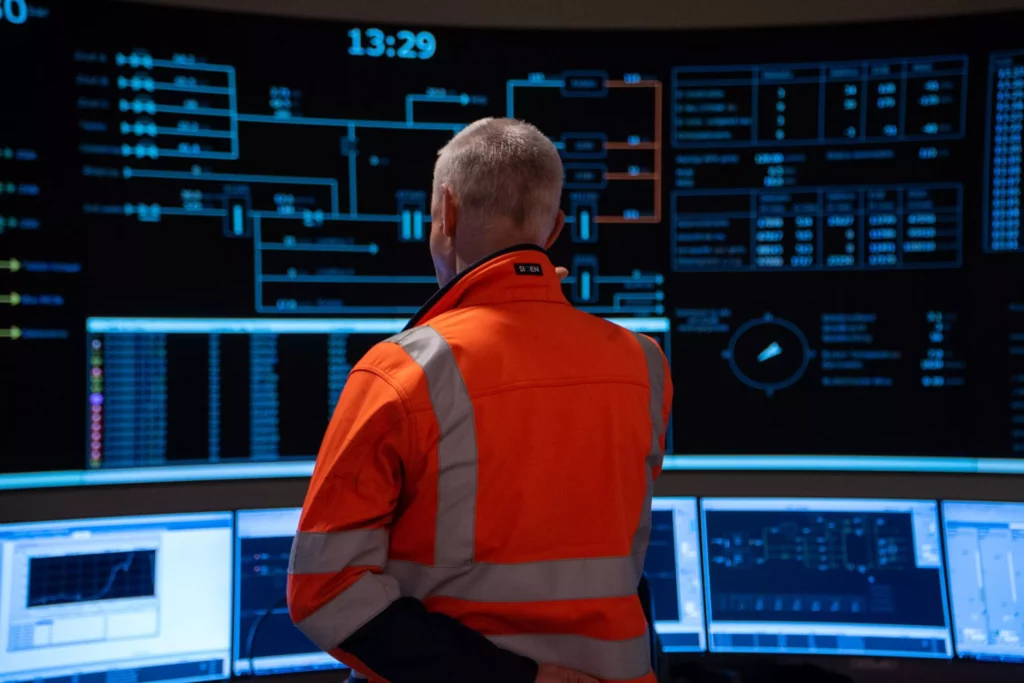Video wall offers Nobian operators reliable view on energy production
Delfzijl, The Netherlands - 2023
Highlights:
- Sharp images
- Longer lifetime
- Energy-efficient



Nobian is a European market leader in the production of salt, essential chemicals, and energy for the industry, varying from construction and cleaning to pharmaceuticals and water treatment. The company is also a leading European producer of chlorine with two production sites in the Netherlands and three in Germany. Chlorine is an important chemical in everyday life and a major building block for the chemical and pharmaceutical industries.
Flexible chlorine production and grid stability
Due to the growing share of solar and wind energy, power supply in general is experiencing more peaks and troughs. To balance this, grid operators are increasingly using so-called regulating capacity. This means that they purchase power from various suppliers, coming from a variety of production locations and power plants.
From the demand side, regulating capacity means that manufacturers can adapt their production in a flexible way in line with the available power. This is also the case with Nobian. The organization adjusts its chlorine production if more or less power is available. If less power is available, they automatically scale down chlorine production. They increase the rate again when supply allows it. This adjustment is done fully automatically.
Control room of Nobian Delesto
Nobian has its own heating plant in Delfzijl, the Netherlands (Nobian Delesto). This ensures that all companies at Chemie Park Delfzijl receive sufficient heat and electricity, and part of the energy is also distributed to the national power grid. In addition, the plant provides utilities for the entire site. This includes cooling water, drinking water, process water and air. Everything that other companies at this site need in regard of utilities is being produced and supplied there.
“In the control room at the Delfzijl plant, we monitor the generation of electricity and heat,” says Roel Swiersema, who is responsible for process automation at Nobian. “We oversee all processes on the new video wall. The processes are set up in such a way that they ensure an optimal energy supply in terms of efficiency. Most of this is controlled automatically. Our operators are mainly there to survey and to act during malfunctions or calamities.”
Sharper images, longer lifetime
In 2008, the organization replaced its former video wall at the Nobian Delesto control room because it had reached its end of life. “Due to the outdated technology of the former video wall, the availability of it became increasingly lower,” says Roel. “That’s why we chose LED technology for our new video wall. The images on the LED video wall are a lot sharper and the wall is also much more energy-efficient. The former video wall used gas discharge lamps, which consume much more energy compared to LED. This way, we save a lot of energy. We also opted for LED because of its long lifespan, which will keep us going for the next ten years.”
The main application presented on the video wall is a DCS (Distributed Control System). This application collects, analyzes and visualizes data. “The DCS application automates our industrial processes. On our video wall, we can see the overview of the main voltage as the primary application, but we also look at other business processes.”
“Operators can choose which sources they want to see on the video wall. For example, they can switch between electricity generation, steam generation, distribution of water and air and a few additional applications. The video wall provides a reliable overview of the entire process and during a calamity, operators can use the overview on the video wall to guide them through the problem-solving process.”
“The images on the LED video wall are a lot sharper and the wall is also much more energy-efficient.”
